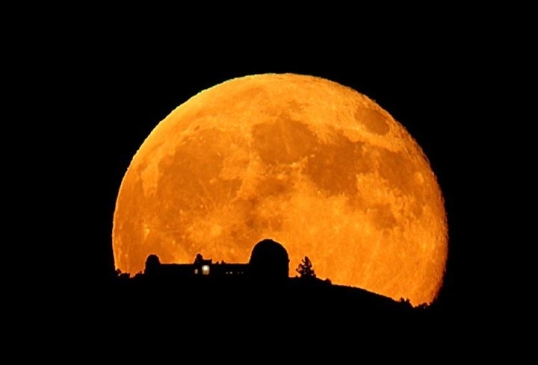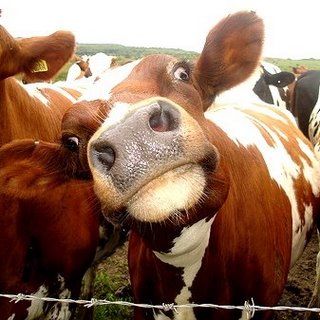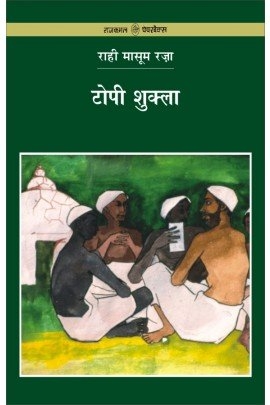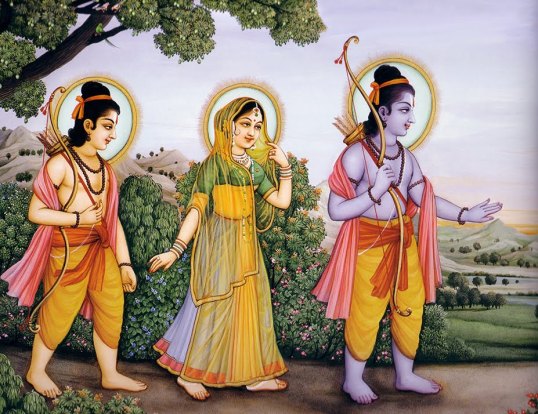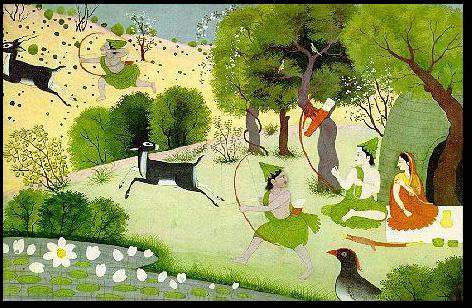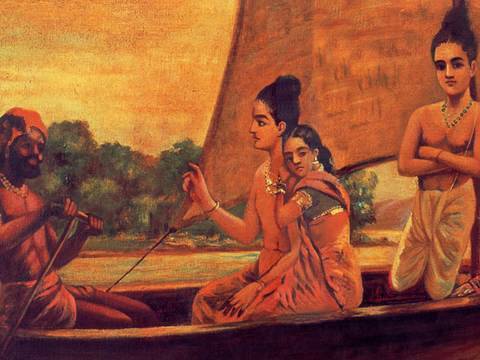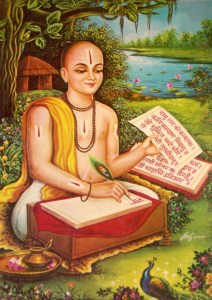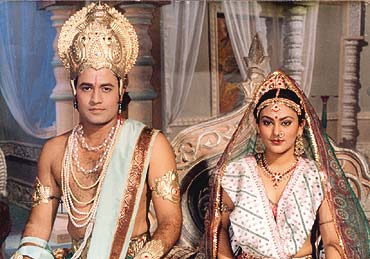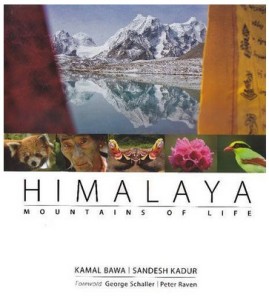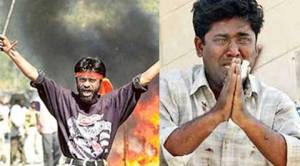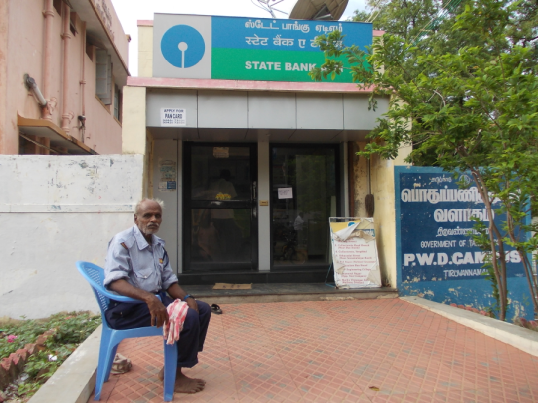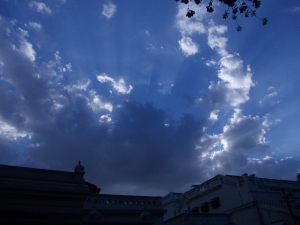It was a tedious job to assimilate shlokas regarding meat eating by Ram and Sita from Valmiki’s Ramayana. Hindu puritans aggressively argue that show them even a single verse on meat eating by Lord Ram! But in reality there are not one or two shlokas rather such instances runs chapter after chapter, pages after pages leaving your throat choked by subzi-puris of vegetarians.
It’s unimaginable and unacceptable to a pious Hindu devotee that his much adored gods were strict non-vegetarians and animal sacrifices were rampant in yajnas. Let’s see in three languages – Sanskrit, English and Hindi for your comfort. Sanskrit verses and its English translation are copied from the website of IIT Kanpur (
http://valmiki.iitk.ac.in) and Hindi translation is reproduced from Dr. Ganga Sahay Sharma’s book of Valmiki Ramayana published by संस्कृत साहित्य प्रकाशन, विश्व बुक्स प्रा. लि., नई दिल्ली चतुर्थ संस्करण 2009.
This article will bust few myths – namely four princes were not borne by eating divine pudding by queens of king Dasharatha but by horse-sacrifice yajna. That Ram and Sita were not vegetarian.
These are few uncomfortable verses for saffron outfits, establishing Ram and Sita as diehard meat eaters:
Consumption of meat and wine by brahmins and rishi-munis
अयोध्याकाण्ड : इक्यानवेवाँ सर्ग (भरद्वाजातिथ्य)
प्राक्स्रोतसश्च या नद्यः प्रत्यक्स्रोतस एव च।
पृथिव्यामन्तरिक्षे च समायान्त्वद्य सर्वशः।।2.91.14।।
Let the rivers flowing towards the east, and the west, flowing on the earth and in the sky, flowing everywhere reach here and now.
अन्या स्रवन्तु मैरेयं सुरामन्यास्सुविष्ठिताम्।
अपरा श्चोदकं शीतमिक्षुकाण्डरसोपमम्।।2.91.15।।
Let some rivers flow with liquor made of datepalms, some with well prepared wine and some with cool water which tastes like sugarcane juice.
आह्वये देवगन्धर्वान्विश्वावसुहहाहुहून्।
तथैवाप्सरसो देवीर्गन्धर्वीश्चापि सर्वशः।।2.91.16।।
I invoke the gandharvas, Visvavasu, Ha Ha and Hu Hu, and also goddesses like gandharvas (heavenly musicians) and apsaras (nymphs) from all regions.
पूर्व एवं पश्चिम की ओर बहने वाली जो नदियाँ पृथ्वी एवं अंतरिक्ष में हैं, वे यहाँ आवें। इन में से कुछ नदियों में मदिरा व कुछ में सुरा बहने लगे। कुछ नदियों में गन्ने के रस के समान मधुर एवं शीतल जल बहने लगे। मैं देवों, गंधर्वों, विश्वावसु, हाहा, हूहू, अप्सराओं, देवियों और गंधर्वों को सभी ओर से बुलाता हूँ। (१४-१६)
शिंशपा आमलकी जम्बूर् याः च अन्याः कानने लताः।
मालती मल्लिका जातिर्याश्चान्याः कानने लताः।।2.91.51।।
Asohka, emblic myrobalan and all other trees found in the forest malati, mallika and jati creepers assumed the form of women, came over to the hermitage of Bharadwaja and said:
प्रमदा विग्रहम् कृत्वा भरद्वाज आश्रमे अवसन्।
सुराम् सुरापाः पिबत पायसम् च बुभुक्षिताः।।2.91.52।।
मांसनि च सुमेध्यानि भक्ष्यन्ताम् यावद् इग्च्छथ।।2.91.53।।
‘O wine drinkers, drink as much as you can those who are hungry partake payasam and sacred meat.’
उच्छाद्य स्नापयन्ति स्म नदीतीरेष वल्गुषु।
अप्येकमेकं पुरषं प्रमदास्सप्त चाष्ट च।।2.91.54।।
Every single warrior was attended by seven or eight women who applied oil and massaged his body and bathed him on the lovely banks of the river.
शीशम, इमली, जामुन आदि के वृक्ष एवं वन की अन्य लताएं स्त्री का रूप धारण कर के भरद्वाज के आश्रम में रहने लगे। वहाँ के परोसने वाले ने कहा, “शराब पीने वाले शराब पिएं, भूखे लोग खीर एवं सुगंधित मांस इच्छानुसार खाएं। नदियों के सुंदर तटों पर सात अथवा आठ स्त्रियाँ एक पुरुष को उबटन लगा कर स्नान कराने लगीं। सुंदर नयनों वाली नारियाँ आईं, जिन्होंने लोगों के पैर दबाए, शरीर पोंछा और शराब पिलाई। (५१-५४)
कुञ्जराश्च खरोष्ट्राश्च गोऽश्वाश्च मृगपक्षिणः।
बभूवुस्सुभृतास्तत्र नान्यो ह्यन्यमकल्पयत्।।2.91.66।।
There the elephants, donkeys and camels, cows and horses and also beasts and birds were well nourished. No one troubled the other.
नाऽशुक्लवासा स्तत्राऽसीत्क्षुधितो मलिनोऽपि वा।
रजसा ध्वस्तकेशो वा नरः कश्चिददृश्यत।।2.91.67।।
In that army there was none who could be seen without wearing garments of sparkling white, who was hungry or dirty or with decayed hair.
आजैश्चापि च वाराहैर्निष्ठानवरस़ञ्चयैः।
फलनिर्यूह संसिद्दैस्सूपैर्गन्ध रसान्वितैः।।2.91.68।।
पुष्पध्वजवतीः पूर्णाश्शुक्लस्यान्नस्य चाभितः।
ददृशुर्विस्मितास्तत्रनरा लौहीस्सहस्रशः।।2.91.69।।
There the soldiers beheld in amazement thousands of iron containers decked with flags and flowers and filled with white rice, mutton, pork, choicest condiments, fruit juice, fragrant and tasty soup.
बभूवुर्वनपार्श्वेषु कूपाः पायसकर्दमाः।
ताश्चकामदुघा गावो द्रुमाश्चासन्मधुश्च्युतः।।2.91.70।।
Along the edge of the forest, wells were filled with thick payasam. There were wishfulfilling cows and honeydripping trees.
वाप्यो मैरेयपूर्णाश्च मृष्टमांसचयैर्वृताः।
प्रतप्तपिठरैश्चापि मार्गमायूरकौक्कुटैः।।2.91.71।।
The wells were found filled with datepalm liquor and surrounded by pots of well cooked meat of peacocks, chicken and other animals.
हाथी, गधे, बैल, घोड़े, पशु एवं पक्षी वहाँ भोजन से इतने तृप्त हुए कि उन्हें अन्य कुछ खाने की इच्छा नहीं रही। वहाँ कोई अश्वेत वस्त्रधारी, भूखा अथवा मलिन नहीं था। कोई भी मनुष्य वहाँ धूलभरे बालों वाला दिखाई नहीं देता था। वहाँ फलों के रस में बकरे एवं सूअर का मांस बना था। दालें विविध रसों वाली थीं। चकित लोगों ने वहाँ हज़ारों पात्र देखे, जिन में फूलों के झंडे थे एवं जो श्वेत अन्न से भरे थे।
वन के समीप वाले कुओं में खीर का कीचड़ हो गया। वहाँ की गाएं कामधेनु एवं वृक्ष शहद टपकाने वाले हो गए थे। बावड़ियाँ शराब से भरी थीं। उन के चारों ओर भुने हुए मृगों, मोरों एवं मुर्गों के मांस के ढेर लगे थे। (६६-७१)
~*~-~*~*~-~*~*~-~*~*~-~*~*~-~*~*~-~*~*~-~*~*~-~*~*~-~*~*~-~*~*~-~*~*~-~*~*~-~*~*~-~*
Ram as a liar (about his food preferences)
अयोध्याकाण्ड : चौवनवाँ सर्ग (भरद्वाज के आश्रम में जाना)
न्यवेदयत चात्मानं तस्मै लक्ष्मणपूर्वजः।
पुत्रौ दशरथस्यावां भगवन् रामलक्ष्मणौ।।2.54.13।।
Lakshmana’s elder brother (Rama) introduced himself (to Bharadwaja), O venerable one, we are both sons of Dasaratha, Rama and Lakshmana.
भार्या ममेयं वैदेही कल्याणी जनकात्मजा।
मां चानुयाता विजनं तपोवनमनिन्दिता।।2.54.14।।
This blessed one is my consort, Sita, daughter of Janaka. Irreproachable she has followed me to the desolate grove of penance (hermitage).
पित्रा प्रव्राज्यमानं मां सौमित्रिरनुज प्रियः।
अयमन्वगमद्भ्राता वनमेव दृढव्रतः।।2.54.15।।
This is the son of Sumitra, my beloved younger brother, a man of firm resolve. He has accompanied me when I was sent on exile to the forest by my father.
पित्रा नियुक्ता भगवन् प्रवेक्ष्यामस्तपोवनम्।
धर्ममेव चरिष्याम स्तत्र मूलफलाशनाः।।2.54.16।।
O venerable one on my father’s command we entered the desolate forest of penance. Subsisting on roots and fruits, I shall practise the righteous way of life.
राम ने उन्हें (भरद्वाज को) अपना परिचय दिया। “हम दोनों दशरथ के पुत्र रामलक्ष्मण हैं। यह कल्याणी वैदेही मेरी पत्नी है। यह प्रशंसनीया मेरे साथ तपोवन में आई है। पिताजी ने मुझे वनवास दिया है। दृढ़निश्चय वाले मेरे अनुज लक्ष्मण मेरे पीछे चले आए हैं। हम पिता की आज्ञा के अनुसार तपोवन में आए हैं एवं फलमूल खाते हुए धर्म का आचरण करेंगे। (१३-१६)
And you thought Ram was a vegetarian?
अयोध्याकाण्ड : पचपनवाँ सर्ग (यमुनातरण)
एकैकं पादपं गुल्मं लतां वा पुष्पशालिनीम्।
अदृष्टपूर्वां पश्यन्ती रामं पप्रच्छ साऽबला।।2.55.30।।
That gentle lady (Sita) enquired of Rama about a tree or a shrub or a creeper in full bloom which she did not see before.
रमणीयान्बहुविधान्पादपान्कुसुमोत्कटान्।
सीतावचनसंरब्ध आनयामास लक्ष्मणः।।2.55.31।।
Cheered by Sita’s indents, Lakshmana brought her various beautiful plants and stocks of flowers.
विचित्रवालुकजलां हंससारसनादिताम्।
रेमे जनकराजस्य सुता प्रेक्ष्य तदा नदीम्।।2.55.32।।
Beholding the river Yamuna with its wonderful water and sand echoing with the cackle of swans and cranes, Sita went ecstatic.
क्रोशमात्रं ततो गत्वा भ्रातरौ रामलक्ष्मणौ।
बहून्मेध्यान्मृगान्हत्वा चेरतुर्यमुनावने।।2.55.33।।
After walking a krosa into the forest on the bank of Yamuna, the two brothers killed many deer suitable for sacrifice and ate them.
बिना देखे हुए एकएक वृक्ष, गुल्म एवं पुष्पों वाली लता को देखती हुई सीता ने राम से पूछा। लक्ष्मण सीता के कहने से अनेक प्रकार के पौधों और पुष्पों को लाए। जनक नरेश की पुत्री सीता विचित्र बालू वाली, हंसों, सारसों के शब्दों से कूजित एवं काले जल वाली यमुना नदी को देख कर प्रसन्न हुई। वहाँ से एक कोस चल कर राम लक्ष्मण दोनों भाइयों ने अनेक प्रकार के पवित्र पशु मारे एवं यमुना के तटवर्ती वन में घूमने लगे। (३०-३३)
Ram and Sita’s meat eating at Chitrakoot, चित्रकूट में राम एवं सीता द्वारा मांस भक्षण
अयोध्याकाण्ड : छियानवेवाँ सर्ग (लक्ष्मण-क्रोधन)
तां तथा दर्शयित्वा तु मैथिलीं गिरिनिम्नगाम्।
निषसाद गिरिप्रस्थे सीतां मांसेन छन्दयन्।।2.96.1।।
Rama showed Sita, the princess of Mithila the river Mandakini flowing in the mountain, gratified her by offering meat (to eat) and sat on the mountain slope.
इदं मेध्यमिदं स्वादु निष्टप्तमिदमग्निना।
एवमास्ते स धर्मात्मा सीतया सह राघवः।।2.96.2।।
Offering Sita several kinds of preparations to eat, righteous Rama, seated in her company remarked, This meat is savoury, this meat roasted on fire is sacred.
तथा तत्राऽसतस्तस्य भरतस्यौपयायिनः।
सैन्यरेणुश्च शब्दश्च प्रादुरास्तां नभस्पृशौ।।2.96.3।।
Now as Rama was sitting there, the tumult and the dust raised by the approaching army of Bharata reached the sky.
सीता को चित्रकूट पर्वत एवं मंदाकिनी नदी दिखाते हुए राम एक चट्टान पर बैठ गए और मांस के द्वारा सीता को बहलाने लगे। “यह मांस पवित्र, स्वादिष्ट एवं आग से भुना हुआ है।” इस प्रकार धर्मात्मा राम सीता के साथ वहाँ बैठे थे। लक्ष्मण भी वहाँ बैठे हुए थे कि भरत की सेना के चलने से उड़ने वाली धूल और उठने वाला शब्द आकाश को छूता हुआ वहाँ आया। (१-३)
Live life KING-size with meat and wine
उत्तरकाण्ड : बयालीसवाँ सर्ग (राम-सीता-विहार)
Original Sanskrit verses and its English translation will be added later. Hindi translation simply means that Ram was enjoying the company of Sita and feeding her wine as Indra used to feed his wife Shachi. Ram’s servants were engaged to feed him well cooked meats and various kind of fruits. Ram was entertained by inebriated dancing nautches.
उस अशोक वाटिका में ऐसे बहुत से लतागृह थे, जो अनेक आसनों से सुशोभित थे। ऐसी विस्तृत अशोक वाटिका में प्रवेश कर के राम सुंदर आकार वाले, पुष्प समूह से विभूषित एवं उत्तम बिछौने वाले आसन पर बैठ गए। राम ने अपने हाथ में नशीली मदिरा ले कर सीता को इस प्रकार पिलाई, जिस प्रकार इंद्र अपनी पत्नी शची को पिलाते हैं। (१६-१८)
तभी सेवक राम के खाने के लिए अच्छी तरह पकाए गए मांस एवं भांतिभांति के फल शीघ्र ले आए। नृत्य तथा गीत में कुशल बालाएं तथा मदिरा के नशे में धुत्त रूपवती स्त्रियाँ गा कर राम का मनोरंजन करने लगीं। नृत्य एवं गीत में कुशल मनोहर रमणियाँ काकुत्स्थवंशी राम के सामने नृत्य करने लगीं। इस प्रकार अत्यंत विभूषित एवं रमण करने वालों में श्रेष्ठ धर्मात्मा राम नित्य मनोरंजन करने लगे। (१९-२२)
Kinds of meats Ram, Lakshman and Sita were used to eat
(Dialogue between Sita and Ravana)
अरण्यकाण्ड सैंतालीसवाँ सर्ग (रावणाधिक्षेप)
विचरामो द्विजश्रेष्ठ वनं गम्भीरमोजसा।
समाश्वस मुहूर्तं तु शक्यं वस्तुमिह त्वया।।3.47.22।।
O best among brahmins we are wandering with valour in this deep forest.
आगमिष्यति मे भर्ता वन्यमादाय पुष्कलम्।
रुरून्गोधा न्वराहांश्च हत्वाऽदायाऽमिषान्बहून्।।3.47.23।।
Rest here awhile. My husband will return with plenty of meat of many kinds from the forest, killing deer, alligators and wild boars.
स त्वं नाम च गोत्रञ्च कुलं चाचक्ष्व तत्त्वतः।
एकश्च दण्डकारण्ये किमर्थं चरसि द्विज।।3.47.24।।
O brahmin, tell me your name, your gotra and your pedigree. And the purpose for which you are going about all alone in this Dandaka forest
हे ब्राह्मणोत्तम! हम इस गंभीर वन में अपने ओज के सहारे विचरण करते हैं। आप थोड़ी देर विश्राम कीजिए। यदि संभव हो तो यहाँ निवास कीजिए। मेरे पति रुरु हरिण, गोह, वराह आदि जंगली पशुओं को मार कर एवं उन का मांस लेकर आएंगे। तुम भी अपना नाम, गोत्र और कुल सत्य सत्य बताओ। हे ब्राह्मण! तुम दण्डकारण्य में अकेले किस लिए घूमते हो? (२२-२४)
~*~-~*~*~-~*~*~-~*~*~-~*~*~-~*~*~-~*~*~-~*~*~-~*~*~-~*~*~-~*~*~-~*~*~-~*~*~-~*~*~-~*
Meat and wine were best option to entertain guests
अयोध्याकाण्ड : चौरासीवाँ सर्ग (गुहागमन)
यदाऽऽदुष्टस्तु भरतो रामस्येह भविष्यति।
सेयं स्वस्तिमती सेना गङ्गामद्य तरिष्यति।।2.84.9।।
Should it happen that Bharata is not illdisposed toward Rama, the army will safe cross the river Ganga today itself.
इत्युक्त्वोपायनं गृह्य मत्स्यमांसमधूनि च।
अभिचक्राम भरतं निषादाधिपतिर्गुहः।।2.84.10।।
Having spoken thus, Guha, lord of the nishadas, approached Bharata, taking with him fish, meat and wine as offerings.
“यहाँ भरत जब राम पर प्रसन्न हो जाएंगे, तभी सेना आज गंगा को पार करेगी।” ऐसा कह कर मल्लाहों का प्रमुख गुह मछली, मांस एवं शहद भेंट के रूप में ले कर गया। (९-१०)
अस्ति मूलं फलञ्चैव निषादैस्समुपाहृतम्।
आर्द्रं च मांसं शुष्कं च वन्यं चोच्चावचं महत्।।2.84.17।।
Here are roots, fruits and a great variety of forest produce, fresh and dried meat brought by the nishadas.
आशंसे स्वाशिता सेना वत्स्यतीमां विभावरीम्।
अर्चितो विविधैः कामै श्श्व स्ससैन्यो गमिष्यसि।।2.84.18।।
We hope your army having refreshed themselves will spend the night here. With our hospitality extended, you can proceed tomorrow.
हम मल्लाहों द्वारा लाए हुए मूल और फल उपस्थित हैं। इन लोगों ने गीला एवं सूखा मांस तथा वन की अनेक वस्तुएं एकत्र की हैं। हम आशा करते हैं कि आप की सेना भोजन कर के रात भर यहीं विश्राम करेगी। कल आप हमारा सत्कार स्वीकार कर के सेना सहित चले जाना। ( १७-१८)
Sages were able to invoke not few pots but rivers of wine!
अयोध्याकाण्ड : इक्यानवेवाँ सर्ग (भरद्वाजातिथ्य)
प्राक्स्रोतसश्च या नद्यः प्रत्यक्स्रोतस एव च।
पृथिव्यामन्तरिक्षे च समायान्त्वद्य सर्वशः।।2.91.14।।
Let the rivers flowing towards the east, and the west, flowing on the earth and in the sky, flowing everywhere reach here and now.
अन्या स्रवन्तु मैरेयं सुरामन्यास्सुविष्ठिताम्।
अपरा श्चोदकं शीतमिक्षुकाण्डरसोपमम्।।2.91.15।।
Let some rivers flow with liquor made of datepalms, some with well prepared wine and some with cool water which tastes like sugarcane juice.
आह्वये देवगन्धर्वान्विश्वावसुहहाहुहून्।
तथैवाप्सरसो देवीर्गन्धर्वीश्चापि सर्वशः।।2.91.16।।
I invoke the gandharvas, Visvavasu, Ha Ha and Hu Hu, and also goddesses like gandharvas (heavenly musicians) and apsaras (nymphs) from all regions.
पूर्व एवं पश्चिम की ओर बहने वाली जो नदियाँ पृथ्वी एवं अंतरिक्ष में हैं, वे यहाँ आवें। इन में से कुछ नदियों में मदिरा व कुछ में सुरा बहने लगे। कुछ नदियों में गन्ने के रस के समान मधुर एवं शीतल जल बहने लगे। मैं देवों, गंधर्वों, विश्वावसु, हाहा, हूहू, अप्सराओं, देवियों और गंधर्वों को सभी ओर से बुलाता हूँ। (१४-१६)
~*~-~*~*~-~*~*~-~*~*~-~*~*~-~*~*~-~*~*~-~*~*~-~*~*~-~*~*~-~*~*~-~*~*~-~*~*~-~*~*~-~*
Animal sacrifices is abundant in Ramayana
अयोध्याकाण्ड : पचासवाँ सर्ग (गुह मिलन)
ततो धान्यधनोपेतान् दानशीलजनान् शिवान्।
अकुतश्चिद्भयान् रम्यांश्चैत्ययूपसमावृतान्।।2.50.8।।
उद्यानाम्रवनोपेतान् सम्पन्नसलिलाशयान्।
तुष्टपुष्टजनाकीर्णान् गोकुलाकुलसेवितान्।।2.50.9।।
लक्षणीयान्नरेन्द्राणां ब्रह्मघोषाभिनादितान्।
रथेन पुरुषव्याघ्रः कोसलानत्यवर्तत।।2.50.10।।
Rama, the best of men, crossed the auspicious land of Kosala which was worth seeing by kings. It looked charming with sacrificial posts and altars, pleasure gardens and mango groves and tanks filled with water. It was rich with herds of
cattle, wealth and food grains. It was inhabited by charitable, contented and well nourished people free from fear from any quarter. And it reverberated with the sounds of Vedic recitations.
इस के पश्चात राम उस कोसल राज्य से बाहर निकल गए, जो धनधान्य से युक्त, दानशील प्रजाओं से युक्त, शुभ, सभी प्रकार से निर्भय एवं सुंदर था। जहाँ स्थानस्थान पर यज्ञ में पशुबलि के खंभे गढ़े हुए थे, चारों ओर आम के बगीचे थे, सरोवरों में जल भरा हुआ था, जहाँ के निवासी प्रसन्न एवं स्वस्थ थे, गायों एवं गोपों के समूह भरे हुए थे, राजाओं द्वारा रक्षा योग्य थे एवं जहाँ वेदमंत्रों की ध्वनि सदैव गूँजती रहती थी। (८-१०)
Deer-sacrifice yajna to appease the god of Vastu in Chitrakoot
अयोध्याकाण्ड : छप्पनवाँ सर्ग (चित्रकूटनिवास)
ऐणेयं मांसमाहृत्य शालां यक्ष्यामहे वयम्।
कर्तव्यं वास्तुशमनं सौमित्रे चिरजीविभिः।।2.56.22।।
O Lakshmana those who intend to live for long (in this hut), should pacify the deity presiding over here. Therefore, we shall bring the venison of a black antelope and make necessary offerings.
मृगं हत्वाऽनय क्षिप्रं लक्ष्मणेह शुभेक्षण।
कर्तव्य श्शास्त्रदृष्टो हि विधिर्धर्ममनुस्मर।।2.56.23।।
Slay an antelope and bring it here quickly. O Lakshmana The rites as prescribed by the scriptures will have to be carried out. You may recollect that tradition.
(राम लक्ष्मण से बोले) “हरिण का मांस ला कर हम इस कुटिया में हवन करेंगे। हे लक्ष्मण! चिर जीवन चाहने वालों को वास्तु देवता की शांति करनी चाहिए। हे सुंदर दृष्टि वाले लक्ष्मण! शीघ्र हरिण मार कर लाओ एवं धर्म का स्मरण करो। हमें शास्त्र में बताई हुई विधि करनी चाहिए।” (२२-२३)
भ्रातुर्वचनमाज्ञाय लक्ष्मणः परवीरहा।
चकार स यथोक्तं च तं राम पुनरब्रवीत्।।2.56.24।।
Lakshmana, slayer of heroes on the enemy’s side, understood and implemented what he was told. Rama again said to him:
ऐणेयं श्रपयस्वैतच्छालां यक्ष्यामहे वयम्।
त्वर सौम्य मुहूर्तोऽयं ध्रुवश्च दिवसोऽप्ययम्।।2.56.25।।
Cook this venison, O handsome one We will offer it to the presiding deity of this hut. Hasten, the day and time are fixed (for the rites).
स लक्ष्मणः कृष्णमृगं मेध्यं हत्वा प्रतापवान्।
अथ चिक्षेप सौमित्रिस्समिद्धे जातवेदसि।।2.56.26।।
Then the powerful son of Sumitra killed a black antelope fit for offering, and offered it to the well kindled fire.
शत्रुवीरों के हंता लक्ष्मण ने राम की आज्ञा का तुरंत पालन किया। इस के पश्चात राम लक्ष्मण से बोले, “हे लक्ष्मण! इस हरिण का मांस पकाओ। हम इस पर्णशाला से संबंधित यज्ञ करेंगे। हे सौम्य! शीघ्रता करो। इस समय उचित मुहूर्त है एवं आज ध्रुव नाम का दिन है।” प्रतापी लक्ष्मण ने पवित्र मृग मार कर जलती हुई आग में डाल दिया। (२४-२६)
तन्तु पक्वं परिज्ञाय निष्टप्तं छिन्नशोणितम्।
लक्ष्मण: पुरुषव्याघ्रमथ राघवमब्रवीत्।।2.56.27।।
With the blood drained out of the venison, Lakshmana roasted it and cooked it well, and then said to Rama, the tiger (best) among men.
अयं कृष्ण स्समाप्ताङ्ग श्शृतो कृष्णमृगो यथा।
देवतां देवसङ्काश यजस्व कुशलो ह्यसि।।2.56.28।।
This black antelope with all its limbs is wellcooked. O divine sire, you may make the offering to Vastu devata in which you are proficient.
जब लक्ष्मण को लगा कि हरिण का मांस ठीक से पक गया है एवं उस में से रक्त निकलना बंद हो गया है तो वे राम से बोले, “मैंने यह कृष्ण मृग अंगों समेत पका लिया है। आप यज्ञ करने में कुशल हैं, इसलिए वास्तु देवता का यज्ञ करें।” (२७-२८)
रामस्स्नात्वा तु नियतो गुणवान् जप्यकोविदः।
सङ्ग्रहेणाकरोत्सर्वान्मन्त्रान्सत्रावसानिकान्।।2.56.29।।
Virtuous Rama, who was an expert in the recitation of mantras, took his bath and his mind controlled, intoned briefly all the mantras appropriate to the completion of the ritual.
इष्ट्वा देवगणान्सर्वान्विवेशाऽवसथं शुचिः।
बभूव च मनोह्लादो रामस्यामिततेजसः।।2.56.30।।
Sanctified with the worship of all the gods, Rama of immeasurable lustre felt a great happiness on entering the hut.
वैश्वदेवबलिं कृत्वा रौद्रं वैष्णव मेव च।
वास्तुसंशमनीयानि मङ्गलानि प्रवर्तयन्।।2.56.31।।
जपं च न्यायत कृत्वा स्नात्वा नद्यां यथाविधि।
पापसंशमनं राम श्चकार बलिमुत्तमम्।।2.56.32।।
Rama, offered oblations to Visvadevas, Rudra and Visnu, performed the auspices for the appeasement of the household deity. And having muttered japa silently in conformity with tradition, he took his ablution in the river as enjoined (by the sastras) and offered his final oblations for the expiation of his sins.
वेदिस्थलविधानानि चैत्यान्यायतनानि च।
आश्रमस्यानुरूपाणि स्थापयामास राघवः।।2.56.33।।
Rama, son of the Raghus, made altars in all the quarters, places of worship and sacred spots for fire befitting a hermitage.
वन्यैर्माल्यैः फलैर्मूलैः पक्वैर्मांसैर्यथाविधि।
अद्भिर्जपैश्च वेदोक्तैर्दर्भैश्च ससमित्कुशैः।।2.56.34।।
तौ तर्पयित्वा भूतानि राघवौ सह सीतया।
तदा विविशतु श्शालां सुशुभां शुभलक्षणौ।।2.56.35।।
Bestowed with auspicious qualities, Rama and Lakshmana along with Sita propitiated those celestial beings with garlands of forest flowers, fruits and roots, wellcooked venison, water, muttering of prayers as expounded in the Vedas, faggots and kusa grass and entered that auspicious hermitage.
गुणी, जपविधि के ज्ञाता एवं नियम पालन करने वाले राम ने स्नान कर के वास्तु देवता की शांति से संबंधित सभी मंत्रों का संक्षेप में जप किया। सभी देवों से संबंधित आहुतियाँ दे कर राम ने पवित्र कुटिया में प्रवेश किया। इस कार्य से परम तेजस्वी राम को मानसिक प्रसन्नता हुई। राम ने विश्वे देव, रूद्र एवं विष्णु से संबंधित बलिकर्म कर के वास्तुदेवता की शांति के लिए अनेक मांगलिक कार्य किए।
राम ने विधिपूर्वक जप कर के नदी में स्नान किया। इस के पश्चात उन्होंने पाप शांति के लिए उत्तम बलि दी। राम ने उस आश्रम के अनुरूप वेदीस्थल, चैत्य एवं आयतन बनाए। राम और लक्ष्मण ने सीता के साथ वन के पुष्प आदि से बनी मालाओं, फलों, मूलों, पके हुए मांसों, जलों, वेदोक्त जपों, दर्भों, समिधाओं एवं कुशों से यथाविधि सभी देवताओं को तृप्त कर के सुंदर कुटिया में प्रवेश किया। (२९-३५)
~*~-~*~*~-~*~*~-~*~*~-~*~*~-~*~*~-~*~*~-~*~*~-~*~*~-~*~*~-~*~*~-~*~*~-~*~*~-~*~*~-~*
Wine and meat as a sacred offering to goddesses (river) Ganga and Yamuna
It seems that the only mode of worshipping gods mentioned in Ramayana was animal sacrifice and offering them wine.
अयोध्याकाण्ड : बावनवाँ सर्ग (गंगा तरण)
ततस्त्वां देवि सुभगे क्षेमेण पुनरागता।
यक्ष्ये प्रमुदिता गङ्गे सर्वकामसमृद्धिनी।।2.52.85।।
O fortunate Devi, he will worship you in delight for fulfilling all his desires after his safe return.
त्वं हि त्रिपथगा देवि ब्रह्मलोकं समीक्षसे।
भार्या चोदधिराजस्य लोकेऽस्मिन् सम्प्रदृश्यसे।।2.52.86।।
O Devi, you are Tripathaga, flowing in three directions (worlds). You behold the region of Brahma and happen to be the spouse of the king of the ocean in this world (of mortals).
सा त्वां देवि नमस्यामि प्रशंसामि च शोभने।
प्राप्तराज्ये नरव्याघ्रे शिवेन पुनरागते।।2.52.87।।
हे सब अभिलाषाएं पूर्ण करने वाली देवी गंगा! मैं सकुशल वापस आ कर प्रसन्नतापूर्वक तुम्हारी पूजा करुँगी। हे तीन पथों से जाने वाली गंगा! तुम ब्रह्मलोक को देखती हो। इस लोक में तुम सागर की पत्नी के रूप में दिखाई देती हो। नरसिंह राम कुशलतापूर्वक पुनः राज्य प्राप्त कर लेंगे, तब मैं आप की प्रशंसा करती हुई आप को नमस्कार करुँगी। (८५-८७)
गवां शतसहस्राणि वस्त्राण्यन्नं च पेशलम्।
ब्राह्मणेभ्यः प्रदास्यामि तव प्रियचिकीर्षया।।2.52.88।।
O Devi O lovely Ganga I offer you my obeisance and my adorations. After the safe return of Ram, the tiger (best) among men, from the forest and after he regains the kingdom I shall give a hundred thousand cows, clothing and delicious food to brahmins as a mark of regard, which will please you.
सुराघटसहस्रेण मांसभूतौदनेन च।
यक्ष्ये त्वां प्रयता देवि पुरीं पुनरुपागता।।2.52.89।।
O Devi after my return to Ayodhya purified by my austerities, I shall worship you by offering a thousand pots of wine and food in the form of meat.
यानि त्वत्तीरवासीनि दैवतानि च सन्ति हि।
तानि सर्वाणि यक्ष्यामि तीर्थान्यायतनानि च।।2.52.90।।
I shall worship all those deities inhabiting your banks and all sacred spots and temples.
उस समय मैं आप को प्रसन्न करने की इच्छा से हज़ारों-लाखों गाएं तथा उत्तम अन्न-वस्त्र ब्राह्मणों को दान करुँगी। हे देवी! मैं पुनः अयोध्या लौट कर मदिरा के हज़ार घड़ों और मांस मिले भात से तुम्हारी पूजा करुँगी। तुम्हारे तट पर जितने भी देवता, तीर्थ एवं मंदिर हैं, मैं उन सब की भी पूजा करुँगी। (८८-९०)
अयोध्याकाण्ड : पचपनवाँ सर्ग (यमुना तरण)
कालिन्दीमध्यमायाता सीता त्वेनामवन्दत।
स्वस्ति देवि तरामि त्वां पारये न्मे पतिर्व्रतम्।।2.55.19।।
यक्ष्ये त्वां गोसहस्रेण सुराघटशतेन च।
स्वस्ति प्रत्यागते रामे पुरी मिक्ष्वाकुपालिताम्।।2.56.20।।
On reaching the middle of the river Yamuna, Sita made reverential salutations to her saying O goddess, I am crossing you, may safety be ours and may my husband fulfil his vow After Ram’s (safe) return to the city (of Ayodhya) ruled by the Ikshvaku kings, I shall worship you with a thousand cows and a hundred pots of wine.
कालिन्दी मथ सीता तु याचमाना कृताञ्जलिः।
तीरमेवाभिसम्प्राप्ता दक्षिणं वरवर्णिनी।।2.55.21।।
While Sita with her fair complexion was thus invoking river Yamuna with folded hands they reached the southern bank.
इस के पश्चात राम-लक्ष्मण ने प्रसन्न हो कर नाव को आगे बढ़ाया। यमुना के मध्य में आ कर सीता ने वंदना की, “हे देवी! आप का कल्याण हो, हम लोग आप को पर कर रहे हैं। मेरे पतिदेव भी अपने व्रत के पार जावें। मैं लौट कर सकुशल अयोध्या पहुँचने पर एक हज़ार गाएं दान कर के एवं मदिरा के सौ घड़े चढ़ा कर आप की पूजा करुँगी।” सीता ने हाथ जोड़ कर यमुना से यह याचना की। (१९-२१)
~*~-~*~*~-~*~*~-~*~*~-~*~*~-~*~*~-~*~*~-~*~*~-~*~*~-~*~*~-~*~*~-~*~*~-~*~*~-~*~*~-~*
Horse-sacrifice yajna in Valmiki Ramayana
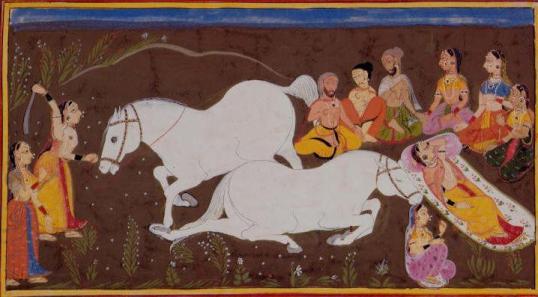
Aswamedha, horse killing by Kaushalya, Image credit: Wikipedia
Whole chapter of Horse-sacrifice (Aswamedha yajna) is reproduced here. Gita Press has shrewdly distorted the translation of verse 35. They added ‘tuber of ashwagandha herb’ in place of animal-fat of sacrificed horse.
बालकाण्ड : चौदहवाँ सर्ग (अश्वमेध अध्याय)
अथ संवत्सरे पूर्णे तस्मिन्प्राप्ते तुरङ्गमे।
सरय्वाश्चोत्तरे तीरे राज्ञो यज्ञोऽभ्यवर्तत।।1.14.1।।
After the end of one year, sacrificial horse returned. Then Dasaratha performed aswamedhayaga on the bank of Sarayu river.
ऋश्यशृङ्गं पुरस्कृत्य कर्म चक्रुर्द्विजर्षभा:।
अश्वमेधे महायज्ञे राज्ञोऽस्य सुमहात्मन:।।1.14.2।।
The best of brahmins led by Rsyasringa performed the rituals of aswamedha organised by the exceedingly magnanimous king.
कर्म कुर्वन्ति विधिवद्याजका वेदपारगा:।
यथाविधि यथान्यायं परिक्रामन्ति शास्त्रत:।।1.14.3।।
The chief priests, masters of the Vedas, conducted the rituals in consonance with traditions and scriptures. They officiated in conformity with duties laid down in the Vedas and according to law.
प्रवर्ग्यं शास्त्रत: कृत्वा तथैवोपसदं द्विजा:
चक्रुश्च विधिवत्सर्वमधिकं कर्म शास्त्रत:।।1.14.4।।
Brahmins performed pravargya and upasada and other ceremonies as per the scriptures and traditions.
अभिपूज्य ततो हृष्टास्सर्वे चक्रुर्यथाविधि।
प्रातस्सवनपूर्वाणि कर्माणि मुनिपुङ्गवा:।।1.14.5।।
Thereafter the eminent ascetics, rejoicing in their hearts performed the worship (of celestial beings) and conducted the prescribed rituals starting with morning ablutions etc.
एक वर्ष समाप्त हो जाने पर यज्ञ का घोड़ा लौट आया। तब सरयू नदी के उत्तरी किनारे पर राजा दशरथ का यज्ञ आरम्भ हुआ। श्रेष्ठ ब्राह्मणों ने ऋष्यशृंग को नेता बना कर यज्ञकर्म आरम्भ किया। वेद के पारंगत याजक विधिपूर्वक कार्य कर रहे थे। वे विधि, परंपरा एवं शास्त्र के अनुसार चल रहे थे। ब्राह्मणों ने शास्त्र के अनुसार प्रवर्ग्य एवं उपसद नमक कर्म किए। इस के पश्चात शास्त्र में बताए गए यज्ञ संबंधी अन्य कार्य किए गए। प्रसन्न हो कर उन श्रेष्ठ मुनियों ने विधिपूर्वक देवताओं की पूजा की तथा प्रातः सवन आदि कर्म किए। (१-५)
ऐन्द्रश्च विधिवद्दत्तो राजा चाभिषुतोऽनघ:।
माध्यन्दिनं च सवनं प्रावर्तत यथाक्रमम्।।1.14.6।।
Somaras was duly offered to Indra daily. The juice was extracted in the morning by pressing the soma plant. Midday ablutions were performed. All in proper sequence.
तृतीयसवनं चैव राज्ञोऽस्य सुमहात्मन:।
चक्रुस्तेशास्त्रतो दृष्ट्वा तथा ब्राह्मणपुङ्गवा:।।1.14.7।।
Those exceedingly noble and eminent brahmins performed third pressing of the soma, in conformity with the sastras.
न चाहुतमभूत्तत्र स्खलितं वापि किञ्चन।
दृश्यते ब्रह्मवत्सर्वं क्षेमयुक्तं हि चक्रिरे।।1.14.8।।
There were no omissions in the offerings nor any lapses in the performance. Everything was done through recitation of mantras and in a wholesome way.
न तेष्वहस्सु श्रान्तो वा क्षुधितो वापि दृश्यते।
नाविद्वान्ब्राह्मणस्तत्र नाशतानुचरस्तथा।।1.14.9।।
During the days (of sacrifice) none felt tired or hungry. There was no brahmin who was not learned or had less than a hundred followers (or disciples).
पापरहित राजा ने निचोड़ा हुआ सोमरस इंद्र को अर्पित किया। इस के पश्चात क्रमानुसार माध्यंदिन सवन का आरंभ किया। उन मुनिपुंगवों ने शास्त्रविधि को देख कर महात्मा राजा दशरथ का तृतीय सवन नामक यज्ञकर्म किया। ऋष्यशृंग आदि ने शिक्षाशास्त्र के अनुसार उच्चारित मंत्रों के द्वारा इंद्र आदि उत्तम देवों का आह्वान किया। होताओं ने मधुर स्वरों से सोमगान करते हुए देवों का आह्वान कर के उन्हें यथायोग्य हवि का भाग दिया। (६-९)
ब्राह्मणा भुञ्जते नित्यं नाथवन्तश्च भुञ्जते।
तापसा भुञ्जते चापि श्रमणा भुञ्जतेतथा।।1.14.10।।
During that period brahmanas as well as those who have masters, (the sudras), ascetics and monks had enough to eat.
वृद्धाश्च व्याधिताश्चैव स्त्रियो बालास्तथैव च।
अनिशं भुञ्जमानानां न तृप्तिरुपलभ्यते।।1.14.11।।
The aged, the sick, women and also children ate there and knew no limit to their enjoyment.
उस यज्ञ में एक भी आहुति नहीं छूटी और न कोई भूल हुई। सारे कार्य वेदविधि के अनुसार हो रहे थे, इसलिए क्षेमकारक थे। उन दिनों वहाँ कोई भी व्यक्ति थका हुआ अथवा भूखा दिखाई नहीं देता था। वहाँ ऐसा कोई भी ब्राह्मण नहीं था, जो विद्वान न हो अथवा जिसके साथ सैकड़ों शिष्य न हों। (१०-११)
दीयतां दीयतामन्नं वासांसि विविधानि च।
इति सञ्चोदितास्तत्र तथा चक्रुरनेकश:।।1.14.12।।
“Give food, give, various kinds of clothes” echoed the organisers. And they (in charge of distribution) did.
अन्नकूटाश्च बहवो दृश्यन्ते पर्वतोपमा:।
दिवसे दिवसे तत्र सिद्धस्य विधिवत्तदा।।1.14.13।।
There, could be seen day after day heaps of nicely cooked food, looking like mountains.
नानादेशादनुप्राप्ता: पुरुषास्स्त्रीगणास्तथा।
अन्नपानैस्सुविहितास्तस्मिन्यज्ञे महात्मन:।।1.14.14।।
Men and women who had come from various countries to that sacrifice were entertained with food and drink by the magnanimous (king).
अन्नं हि विधिवत्साधु प्रशंसन्ति द्विजर्षभा:।
अहो तृप्ता: स्म भद्रं ते इति शुश्राव राघव:।।1.14.15।।
Brahmins having tasted the delicious food cooked in prescribed manner, praised saying “Ah We are fully satisfied. Prosperity to you”. Such were the words heard by king Dasaratha.
स्वलङ्कृताश्च पुरुषा ब्राह्मणान्पर्यवेषयन्।
उपासते च तानन्ये सुमृष्टमणिकुण्डला:।।1.14.16।।
While brahmins were being served with food by well dressed men, some others wearing pendents studded with shining jewels assisted them.
वहाँ नित्य ब्राह्मण, शूद्र, तपस्वी, सन्यासी, वृद्ध, रोगी, स्त्रियाँ एवं बच्चे भोजन करते थे। रातदिन भोजन करने पर भी उन्हें तृप्ति नहीं होती थी। वहाँ अनेक अधिकारी इस प्रकार आदेश करते रहते थे, “अन्न दिया जाए, वस्त्र दिए जाएं।” वहाँ प्रतिदिन पर्वत के समान ऊँचे एवं विधिपूर्वक बनाए हुए खाद्य पदार्थों के ढेर देखे जाते थे। वहाँ भिन्नभिन्न देशों से आए हुए स्त्रीपुरुषों का अन्न-पान से भली प्रकार स्वागत किया गया। (१२-१६)
कर्मान्तरे तदा विप्रा हेतुवादान्बहूनपि।
प्राहुश्च वाग्मिनो धीरा: परस्परजिगीषया।।1.14.17।।
In the interval between ceremonies, eloquent and sagacious brahmins were engaged in various disputations, desirous of victory.
दिवसे दिवसे तत्र संस्तरे कुशला द्विजा:।
सर्वकर्माणि चक्रुस्ते यथाशास्त्रं प्रचोदिता:।।1.14.18।।
Every day in that sacrifice brahmins, skilful in rituals, persuaded (by sage Vasishta), performed all their duties as per tradition.
नाषडङ्गविदत्रासीन्नाव्रतो नाबहुश्रुत:।
सदस्यास्तस्य वै राज्ञो नावादकुशला द्विजा:।।1.14.19।।
Here (in this sacrificial pavillion), there was none who was not versed in six Vedangas,
not true to vows, not learned in many sastras nor adept in discussions (on sastras).
प्राप्ते यूपोच्छ्रये तस्मिन्षड्बैल्वा: खादिरास्तथा।
तावन्तो बिल्वसहिता: पर्णिनश्च तथापरे।।1.14.20।।
श्लेष्मातकमयस्त्वेको देवदारुमयस्तथा।
द्वावेव विहितौ तत्र बाहुव्यस्तपरिग्रहौ।।1.14.21।।
When the time came to erect sacrificial posts, six posts each made of bilva and khadira wood and many made of parni wood along, one of sleshmataka and two of devadaru wood, with a distance of two outstretched hands between them were erected.
उस यज्ञ में प्रतिदिन कर्मनिपुण ब्राह्मण आचार्यों के निर्देश के अनुसार शास्त्रीय विधि से काम कर रहे थे। राजा दशरथ के उस यज्ञ में बैठने वाला एक भी ब्राह्मण ऐसा नहीं था, जो वेद के छः अंगों को न जानता हो, व्रतशील न हो, विद्वान न हो एवं वादविवाद में कुशल न हो। (२०-२१)
कारितास्सर्व एवैते शास्त्रज्ञैर्यज्ञकोविदै:।
शोभार्थं तस्य यज्ञस्य काञ्चनालङ्कृताऽभवन्।।1.14.22।।
All these posts were prepared by knowers of sastras and by those well versed in the performance of sacrifices. They were decorated with gold to add elegance to the sacrifice.
एकविंशतियूपास्ते एकविंशत्यरत्नय:।
वासोभिरेकविंशद्भिरेकैकं समलङ्कृता:।।1.14.23।।
These twentyone sacrificial posts, each measuring twentyone ‘aratni’ height, were well decorated wrapped in a piece of cloth.
विन्यस्ता विधिवत्सर्वे शिल्पिभिस्सुकृता दृढा:।
अष्टाश्रयस्सर्व एव श्लक्ष्णरूपसमन्विता:।।1.14.24।।
All those posts, strong with eight sides and finely finished surfaces, well carved by sculptors were duly erected.
उस यज्ञ में यूप (लकड़ी का वह खंभा जिस से बलिपशु बाँधा जाता था) गाड़ने के अवसर पर बेल, खदिर एवं पलाश के छः छः, बहेड़े का एक तथा देवदारु के दो यूप गाड़े गए। यूपों की गोलाई इतनी थी कि उन्हें दो हाथ फैला कर घेरे में लिया जा सके। उन्हें दोदो हाथ की दूरी पर गाड़ा गया था। शास्त्रों के ज्ञाता एवं यज्ञकर्म में कुशल लोगों द्वारा वे यूप बनाए गए थे। यज्ञ की शोभा बढ़ाने के लिए यूपों को स्वर्ण अलंकारों से सजाया गया था। (२२-२४)
आच्छादितास्ते वासोभि: पुष्पैर्गन्धैश्च भूषिता:।
सप्तर्षयो दीप्तिमन्तो विराजन्ते यथा दिवि।।1.14.25।।
Decorated with flowers and sandal paste and covered with cloths, stood the bright sacrificial posts shining like seven sages in the sky.
इष्टकाश्च यथान्यायं कारिताश्च प्रमाणत:।
चितोऽग्निर्ब्राह्मणैस्तत्र कुशलैश्शुल्बकर्मणि।।1.14.26।।
The sacrificial fireplace was constructed with bricks with standard measurement by brahmins who were experts in the art of measuring land with a string or single strand.
सचित्यो राजसिंहस्य सञ्चित: कुशलैर्द्विजै:।
गरुडो रुक्मपक्षो वै त्रिगुणोऽष्टादशात्मक:।।1.14.27।।
That sacrificial altar of the lion among kings, (Dasaratha), erected by well trained brahmins was in the shape of the golden winged ‘Garuda’ it had three ranges and thrice as many fireplaces i.e eighteen in number.
उन इक्कीस यूपों में से प्रत्येक का व्यास चौबीस अंगुल था। इक्कीस वस्त्रों द्वारा प्रत्येक यूप को सजाया गया था। विधिपूर्वक गाड़े गए यूपों को कारीगरों ने दृढ़ कर दिया था। प्रत्येक चिकने एवं सुंदर यूप के आठआठ पहलू थे। वस्त्रों से ढके हुए, पुष्पों एवं सुगंधित द्रव्यों से सुशोभित दीप्ति वाले वे यूप इस प्रकार लग रहे थे, जैसे आकाश में सप्तर्षि विराजते हैं। (२५-२७)
नियुक्तास्तत्र पशवस्तत्तदुद्दिश्य दैवतम्।
उरगा: पक्षिणश्चैव यथाशास्त्रं प्रचोदिता:।।1.14.28।।
Animals, serpents and birds were kept ready after the sastras intended (for sacrifice) for those respective deities.
शामित्रे तु हयस्तत्र तथा जलचराश्च ये।
ऋत्विग्भिस्सर्वमेवैतन्नियुक्तं शास्त्रतस्तदा।।1.14.29।।
When the time came to sacrifice the animals, the chief priests, in accordance with tradition, tied up the horse and all the aquatic animals to the sacrificial posts.
पशूनां त्रिशतं तत्र यूपेषु नियतं तदा।
अश्वरत्नोत्तमं तस्य राज्ञो दशरथस्य च ।।1.14.30।।
Three hundred animals and the jewel of the horses (from the stables) belonging to king Dasaratha were bound to the sacrificial posts.
कौसल्या तं हयं तत्र परिचर्य समन्तत:।
कृपाणैर्विशशासैनं त्रिभि: परमया मुदा ।।1.14.31।।
Kausalya, with immense glee having gone round and worshipped that horse, severed it with three strokes of scimitar.
पतत्रिणा तदा सार्धं सुस्थितेन च चेतसा।
अवसद्रजनीमेकां कौशल्या धर्मकाम्यया।।1.14.32।।
Kausalya, in her devotion to duty and with a happy state of mind, passed one night near that horse.
यज्ञकुण्ड बनाने के लिए नियम एवं प्रमाण के अनुसार ईंटें बनाई गईं। शुल्व कर्म में कुशल ब्राह्मणों द्वारा यज्ञकुण्डों में अग्नि का चयन किया गया। कुशल ब्राह्मणों द्वारा शक्तिशाली राजा दशरथ के यज्ञ की अग्निस्थापन की वेदी बनाई गई। वह पंख फैलाए हुए सुनहरे गरुण के समान प्रतीत हो रही थी। उस में अठारह प्रकार की तीन रस्सियाँ बाँधी गईं। भिन्नभिन्न देवताओं से संबंधित पशु एवं शास्त्र के अनुसार सर्प तथा पक्षी वहाँ रखे गए थे। यज्ञ में ऋत्विजों ने शास्त्रीय विधि के अनुसार घोड़ों एवं जलचरों को बाँधा था। यज्ञ में तीन सौ पशु निश्चित यूपों से बँधे हुए थे। राजा दशरथ का उत्तम घोड़ा अलग बँधा हुआ था। (२८-३२)
होताऽध्वर्युस्तथोद्गाता हस्तेन समयोजयन्।
महिष्या परिवृत्त्या च वावातां च तथापराम्।।1.14.33।।
Hota, Adhvaryu and Udgata arranged Mahishi, Parivritti, Vavaata and another woman known as Palakali to touch (keep the company of) the sacrificial horse.
पतत्रिणस्तस्य वपा मुद्धृत्य नियतेन्द्रिय:।
ऋत्विक्परमसम्पन्न: श्रपयामास शास्त्रत:।।1.14.34।।
The official priest, highly knowledgeable in scriptures and having restrained senses, removed the marrow from the horse and cooked it according to tradition.
धूमगन्धं वपायास्तु जिघ्रति स्म नराधिप:।
यथाकालं यथान्यायं निर्णुदन्पापमात्मन:।।1.14.35।।
The king at appropriate time and in agreement with the scriptures inhaled the odour of the smoke (from the burnt marrow) and absolved himself of his sins.
हयस्य यानि चाङ्गानि तानि सर्वाणि ब्राह्मणा:।
अग्नौ प्रास्यन्ति विधिवत्समन्त्राष्षोडशर्त्विज:।।1.14.36।।
The sixteen officiating priests (brahmins) offered all the horse’s limbs with prayers as per the customs.
प्लक्षशाखासु यज्ञानामन्येषां क्रियते हवि:।
अश्वमेधस्य यज्ञस्य वैतसो भाग इष्यते।।1.14.37।।
In other sacrifices oblations are offered with branches of a plaksha tree but in Aswamedha a branch of cane creeper is chosen instead.
कौशल्या ने उस घोड़े की सभी प्रकार से पूजा कर के परम प्रसन्नता से तीन बार तलवार चला कर उस का वध किया। कौशल्या धर्मलाभ की कामना से मन शांत कर के उस घोड़े के साथ एक रात रहीं। होता, अध्वर्यु एवं उदगाता ने अपने हाथ से दशरथ की अनु क्षत्रिय जाति वाली रानियों, वैश्य जाति की पत्नियों एवं शूद्र जाति की स्त्रियों से उस घोड़े का अंगस्पर्श कराया। इंद्रियों पर संयम रखने वाले ऋत्विजों ने उस घोड़े की चर्बी को ले कर शास्त्रीय विधि से पकाया। राजा दशरथ ने अपने पापों का विनाश करते हुए शास्त्रीय विधि एवं परंपरा के अनुसार उस चर्बी के धुएं की गंध को सूँघा। (३३-३७)
त्र्यहोऽश्वमेधस्सङ्ख्यात: कल्पसूत्रेण ब्राह्मणै:।
चतुष्टोममहस्तस्य प्रथमं परिकल्पितम्।।1.14.38।।
According to Kalpa sutra, aswamedha in conducted for three days. In the first day, chatushtoma is arranged.
उक्थ्यं द्वितीयं संख्यातमतिरात्रं तथोत्तरम्।
कारितास्तत्र बहवो विहिताश्शास्त्रदर्शनात्।।1.14.39।।
On the second day Ukthya and on the third day Atiraatra were performed. Many sacrifices fixed according to the scriptures were also performed.
ज्योतिष्टोमायुषी चैवमतिरात्रौ विनिर्मितौ।
अभिजिद्विश्वजिच्चैवमप्तोर्यामो महाक्रतु:।।1.14.40।।
Jyotishtoma and Ayuryaga in Atiratra, Abhijit, Viswajit and Aptoryama ceremonies constituting the great sacrifice were performed in the prescribed manner.
प्राचीं होत्रे ददौ राजा दिशं स्वकुलवर्धन:।
अध्वर्यवे प्रतीचीं तु ब्रह्मणे दक्षिणां दिशम्।।1.14.41।।
उद्गात्रे च तथोदीचीं दक्षिणैषा विनिर्मिता।
हयमेधे महायज्ञे स्वयंभूविहिते पुरा।।1.14.42।।
In order to promote his dynasty, king Dasaratha gave away eastern region to Hotar, western region to Adhvaryu, southern region to Brahma and northern region to Udgata. These offerings were made in accordance with the prescriptions by Brahma long all.
सभी सोलह ऋत्विज ब्राह्मणों ने घोड़े के सभी अंगों को अग्नि में डाला। अन्य यज्ञों में पाकड़ की शाखा पर घोड़े के अंग रख कर आहुति दी जाती है, पर अश्वमेध यज्ञ में बेंत की शाखा पर रख कर आहुति देने का विधान है। ब्राह्मणों ने कल्पसूत्र में अश्वमेध यज्ञ तीन दिन का बतलाया है। अतः पहले दिन चतुष्टोम यज्ञ किया गया। दूसरे दिन उक्थ्य एवं तीसरे दिन अतिरात्र नामक यज्ञ हुआ। इस के बाद शास्त्र में बताए गए अनेक प्रकार के यज्ञ किए गए। ज्योतिष्टोम, आयुष्टोम, अभिजित, अतिरात्र एवं विश्वजित नामक यज्ञ अश्वमेध की समाप्ति पर किए गए। (३८-४२)
क्रतुं समाप्य तु तदा न्यायत: पुरुषर्षभ:।
ऋत्विग्भ्यो हि ददौ राजा तां धरां कुलवर्धन:।।1.14.43।।
The king best among men and upholder of his dynasty, having concluded the sacrifice according to law, offered this entire earth as gift to priests.
ऋत्विजस्त्वब्रुवन्सर्वे राजानं गतकल्मषम्।
भवानेव महीं कृत्स्नामेको रक्षितुमर्हति।।1.14.44।।
But all the priests said to the king purged of his sins, “O Lord of men you alone are capable of protecting this earth”.
न भूम्या कार्यमस्माकं न हि शक्तास्स्म पालने।
रतास्स्वाध्यायकरणे वयं नित्यं हि भूमिप।।1.14.45।।
“O ruler of the earth We are constantly engaged in the study of the Vedas. We are not capable of ruling the earth and we cannot do anything with its possession. Give some other charity in lieu of that.
मणिरत्नं सुवर्णं वा गावो यद्वा समुद्यतम्।
तत्प्रयच्छ नरश्रेष्ठ धरण्या न प्रयोजनम्।।1.14.46।।
O best of men give us gems or gold or cows or whichever is readily available. We have no use with this earth”.
एवमुक्तो नरपतिर्ब्राह्मणैर्वेदपारगै:।।1.14.47।।
गवां शतसहस्राणि दश तेभ्यो ददौ नृप:।
शतकोटीस्सुवर्णस्य रजतस्य चतुर्गुणम्।।1.14.48।।
Lord of men, the king having been thus addressed by brahmins who were wellversed in the Vedas, bestowed on them ten hundred thousand cows, a hundred crore of gold coins and four times as much in silver coins.
ऋत्विजश्च ततस्सर्वे प्रददुस्सहिता वसु।
ऋश्यशृङ्गाय मुनये वसिष्ठाय च धीमते।।1.14.49।।
All the priests collectively offered that wealth to sage Rsyasringa and Vasishta endowed with prudence.
ततस्ते न्यायत: कृत्वा प्रविभागं द्विजोत्तमा:।
सुप्रीतमनसस्सर्वे प्रत्यूचुर्मुदिता भृशम्।।1.14.50।।
Then those highly pleased brahmins, having distributed that wealth with equity, again said to the king.
अपने कुल की उन्नति के इच्छुक राजा ने दक्षिणा के रूप में होता को पूर्व दिशा का, अध्वर्यु को पश्चिम दिशा का, ब्रह्मा को दक्षिण दिशा का एवं उदगाता को उत्तर दिशा का राज्य दिया। स्वयंभू ब्रह्मा ने प्राचीन काल में अश्वमेध महायज्ञ की यही दक्षिणा बताई है। पुरुषश्रेष्ठ दशरथ ने विधिपूर्वक यज्ञ समाप्त कर के ऋत्विजों को दक्षिणा में सारा राज्य दे डाला। पापरहित राजा दशरथ से सभी ऋत्विजों ने कहा : “एकमात्र आप ही सारी धरती की रक्षा कर सकते हैं। हमें भूमि से कोई प्रयोजन नहीं है। न ही हम इस का पालन करने में समर्थ हैं। हे राजन! हम तो नित्य स्वाध्याय में लगे रहते हैं। आप हमें इस भूमि के मूल्य के रूप में मणि, रत्न, स्वर्ण, गाएं अथवा जो भी आप को सुलभ हो, वह दे दें। हे नरश्रेष्ठ! हमें धरती से कोई प्रयोजन नहीं है।” वेद के पारंगत ब्राह्मणों द्वारा इस प्रकार कहे जाने पर राजा दशरथ ने उन्हें दस लाख गाएं, सोने के दस करोड़ सिक्के एवं चाँदी के चालीस करोड़ सिक्के दक्षिणा में दिए। (४३-५०)
तत: प्रसर्पकैभ्यस्तु हिरण्यं सुसमाहित:।
जाम्बूनदं कोटिसंख्यं ब्राह्मणेभ्यो ददौ तदा।।1.14.51।।
Thereafter, with earnestness king Dasaratha bestowed a crore of gold coins to brahmins who had come to see the sacrifice.
दरिद्राय द्विजायाथ हस्ताभरणमुत्तमम्।
कस्मैचिद्याचमानाय ददौ राघवनन्दन:।।1.14.52।।
Dasaratha then gave his excellent bracelet to a poor brahmin who solicited alms.
तत: प्रीतेषु नृपतिर्द्विजेषु द्विजवत्सल:।
प्रणाममकरोत्तेषां हर्षपर्याकुलेक्षण:।।1.14.53।।
When the brahmins were pleased, king Dasaratha who was fond of brahmins bowed to them with his eyes filled with delight.
तस्याशिषोऽथ विधिवद्ब्राह्मणैस्समुदीरिता:।
उदारस्य नृवीरस्य धरण्यां प्रणतस्य च।।1.14.54।।
Brahmins uttered blessings upon the generous king when he prostrated before them according to procedure.
तत: प्रीतमना राजा प्राप्य यज्ञमनुत्तमम्।
पापापहं स्वर्नयनं दुष्करं पार्थिवर्षभै:।।1.14.55।।
Sacrifice destroys sins. It leads to heaven. It is incapable of being done by other monarchs. King Dasaratha was very much pleased after performing this great sacrifice.
ततोऽब्रवीदृश्यशृङ्गं राजा दशरथस्तदा।
कुलस्य वर्धनं त्वं तु कर्तुमर्हसि सुव्रत।।1.14.56।।
King Dasaratha then addressing Rsyasringa said “O Adherent of vows you can help the continuity of my race”.
तथेति च स राजानमुवाच द्विजसत्तम:।
भविष्यन्ति सुता राजंश्चत्वारस्ते कुलोद्वहा:।।1.14.57।।
सब ऋत्विजों ने एकत्र हो कर वह धन मुनि ऋष्यश्रृंग एवं बुद्धिमान वसिष्ठ को समर्पित कर दिया। उन्होंने सारा धन न्यायपूर्वक सब को बाँट दिया। सभी ऋत्विजों ने इस से अत्यंत प्रसन्न हो कर कहा कि हम सभी प्रकार से संतुष्ट हैं। जो ब्राह्मण यज्ञ देखने आए थे, उन को दशरथ जी ने सावधानीपूर्वक सोने की करोड़ मुद्राएँ दान में दीं। किसी दरिद्र ब्राह्मण के याचना करने पर राघवनंदन दशरथ ने अपने हाथ का कंकण उतार कर दे दिया। ब्राह्मणों के प्रसन्न हो जाने पर ब्राह्मणों से प्रेम करने वाले राजा दशरथ ने प्रसन्नता भरी आँखों से देखते हुए उन्हें प्रणाम किया। ब्राह्मणों ने उस उदार, नरवीर और धरती पर लेटे हुए राजा दशरथ को विधिपूर्वक आशीर्वाद दिया।
इस के पश्चात राजा ने उस श्रेष्ठ, पापनाशक, स्वर्ग में ले जाने वाले एवं अन्य राजाओं के लिए कठिन यज्ञ को समाप्त कर के प्रसन्न मन से ऋष्यश्रृंग से कहा, “हे सुव्रत! आप मेरे कुल की वृद्धि का उपाय कीजिए।” द्विजश्रेष्ठ ऋष्यश्रृंग ने राजा को उत्तर दिया, “ऐसा ही होगा। कुल का कल्याण करने वाले आप के चार पुत्र होंगे।” (५१-५७)
Rsyasringa, the best of brahmins, addressing the king said, “O King Let it be. Four sons perpetuating your race will be born to you”.
इत्यार्षे श्रीमद्रामायणे वाल्मीकीय आदिकाव्ये बालकाण्डे चतुर्दशस्सर्ग:।।
Thus ends the fourteenth sarga of Balakanda of the holy Ramayana the first epic composed by sage Valmiki.
इस प्रकार ऋषि वाल्मीकि-कृत आदिकाव्य रामायण के बालकाण्ड में ‘अश्वमेध’ नामक चौदहवाँ सर्ग समाप्त हुआ।
~*~-~*~*~-~*~*~-~*~*~-~*~*~-~*~*~-~*~*~-~*~*~-~*~*~-~*~*~-~*~*~-~*~*~-~*~*~-~*~*~-~*
In a span of 3000 years horse-sacrifice metamorphosed to pudding by Tulsidas
Ramayana is the most popular story of Indian subcontinent and the earliest telling of Ram-katha is by sage Valmiki and that period is depicted as 1500 BC by historians. Thirteenth century Tamil poet Kamban’s Ram is a strict vegetarian and ridicules Sita after her rescue from Ravana that she must have tasted meat in the captivity of Ravana. In sixteenth century, Tulsidas has retold Ramayana again in Awadhi dialect in common people’s language and captivated the mind of folk like never before, till date his version of Ram-katha is the most popular one, selling it near a crore of copies by Gita Press, and his Ram, Lakshman and Sita are simple vegetarians who relished only fruits during forest exile. No doubt, Valmiki Ramayana’s Ram & Sita were strict non-vegetarian, the story tellers of subsequent periods chose their heroes as vegetarian after the influence of Jainism and Buddhism.
दोहा
कौसल्यादि नारि प्रिय सब आचरन पुनीत।
पति अनुकूल प्रेम दृढ़ हरि पद कमल बिनीत।।188।।
उनकी (दशरथ) कौसल्या आदि प्रिय रानियाँ सभी पवित्र आचरणवाली थीं। वे [बड़ी] विनीत और पति के अनुकूल [चलनेवाली] थीं और श्रीहरि के चरणकमलों में उनका दृढ़ प्रेम था।।१८८।।
चौपाई
एक बार भूपति मन माहीं। भै गलानि मोरें सुत नाहीं।।
गुर गृह गयउ तुरत महिपाला। चरन लागि करि बिनय बिसाला।।
एक बार राजा के मन में बड़ी ग्लानि हुई कि मेरे पुत्र नहीं है। राजा तुरंत ही गुरु के घर गये और चरणों में प्रणाम कर बहुत विनय की।।१।।
निज दुख सुख सब गुरहि सुनायउ। कहि बसिष्ठ बहुबिधि समुझायउ।।
धरहु धीर होइहहिं सुत चारी। त्रिभुवन बिदित भगत भय हारी।।
राजा ने अपना सारा दुःख-सुख गुरु को सुनाया। गुरु वसिष्ठजी उन्हें बहुत प्रकार से समझाया [और कहा –] धीरज धरो, तुम्हारे चार पुत्र होंगे, जो तीनों लोकों में प्रसिद्ध और भक्तों के भय को हरनेवाले होंगे।।२।।
सृंगी रिषहि बसिष्ठ बोलावा। पुत्रकाम सुभ जग्य करावा।।
भगति सहित मुनि आहुति दीन्हें। प्रगटे अगिनि चरू कर लीन्हें।।
वसिष्ठजी ने श्रृंगी ऋषि को बुलवाया और उनसे शुभ पुत्रकामेष्टि यज्ञ कराया। मुनि के भक्ति सहित आहुतियाँ देने पर अग्निदेव हाथ में चरु (हविष्यान्न खीर) लिये प्रकट हुये।।३।।
जो बसिष्ठ कछु हृदयँ बिचारा। सकल काजु भा सिद्ध तुम्हारा।।
यह हबि बाँटि देहु नृप जाई। जथा जोग जेहि भाग बनाई।।
[और दशरथ से बोले –] वसिष्ठ ने हृदय में जो कुछ विचारा था, तुम्हारा वह सब काम सिद्ध हो गया। हे राजन! [अब] तुम जाकर इस हविष्यान्न (पायस) को, जिसको जैसा उचित हो, वैसा भाग बनाकर बाँट दो।।४।।
दोहा
तब अदृस्य भए पावक सकल सभहि समुझाइ।।
परमानंद मगन नृप हरष न हृदयँ समाइ।।189।।
तदन्तर अग्निदेव सारी सभा को समझाकर अन्तर्धान हो गये। राजा परमानन्द में मग्न हो गये, उनके हृदय में हर्ष समाता न था।।१८९।।
चौपाई
तबहिं रायँ प्रिय नारि बोलाईं। कौसल्यादि तहाँ चलि आई।।
अर्ध भाग कौसल्याहि दीन्हा। उभय भाग आधे कर कीन्हा।।
उसी समय राजा ने अपनी प्यारी पत्नियों को बुलाया। कौसल्या आदि सब [रानियाँ] वहाँ चली आयीं। राजा ने [पायस का] आधा भाग कौसल्या को दिया, [और शेष] आधे के दो भाग किये।।१।।
कैकेई कहँ नृप सो दयऊ। रह्यो सो उभय भाग पुनि भयऊ।।
कौसल्या कैकेई हाथ धरि। दीन्ह सुमित्रहि मन प्रसन्न करि।।
वह (उनमें से एक भाग) राजा ने कैकयी को दिया। शेष जो बचा रहा उसके फिर दो भाग हुए और राजा ने उनको कौसल्या और कैकयी के हाथ पर रख कर (अर्थात उनकी अनुमति लेकर) और इस प्रकार उनका मन प्रसन्न करके सुमित्रा को दिया।।२।।
एहि बिधि गर्भसहित सब नारी। भईं हृदयँ हरषित सुख भारी।।
जा दिन तें हरि गर्भहिं आए। सकल लोक सुख संपति छाए।।
इस प्रकार सब स्त्रियाँ गर्भवती हुईं। वे हृदय में बहुत हर्षित हुईं। उन्हें बड़ा सुख मिला। जिस दिन से श्रीहरि [लीला से ही] गर्भ में आये, सब लोकों में सुख और शांति छा गयी।।३।।
मंदिर महँ सब राजहिं रानी। सोभा सील तेज की खानीं।।
सुख जुत कछुक काल चलि गयऊ। जेहिं प्रभु प्रगट सो अवसर भयऊ।।
शोभा, शील और तेज की खान [बनी हुई] सब रानियाँ महल में सुशोभित हुईं। इस प्रकार कुछ समय सुखपूर्वक बीता और वह अवसर आ गया जिसमें प्रभु को प्रकट होना था।।४।।
(*Hindi translation is by Gita Press’ Ramcharitmanas, 97th edition. Gita Press has deliberately omitted or misinterpreted verses of Valmiki Ramayana regarding Ram’s meat eating to satisfy Hindu devotees.)
~*~-~*~*~-~*~*~-~*~*~-~*~*~-~*~*~-~*~*~-~*~*~-~*~*~-~*~*~-~*~*~-~*~*~-~*~*~-~*~*~-~*
Ramanand Sagar’s Ram on Doordarshan of late eighties
This article would be incomplete without giving credit to Sri Ramanand Sagar who made a warrior prince to a god incarnate and millions of Indians, irrespective of their religion and social status, glued to their tv sets on every sunday for two and half years on the national tv channel – Doordarshan in late eighties, and he made Ram the most admired god in this Kaliyuga. Sagar and Tulsidas have made Ram as a figure worth Latin maxim –
“rex non potest peccare,” meaning “the king can do no wrong.” In Ramanand Sagar’s tv serial it is shown that rakshasas (demons) disrupt yajnas by throwing animal bones from sky but in reality these were Brahmins, rishi-munis who used to cull animals and devour them in the name of animal sacrifices.
~*~-~*~*~-~*~*~-~*~*~-~*~*~-~*~*~-~*~*~-~*~*~-~*~*~-~*~*~-~*~*~-~*~*~-~*~*~-~*~*~-~*
Meat eater Ram’s devotees as a torchbearer of vegetarianism!
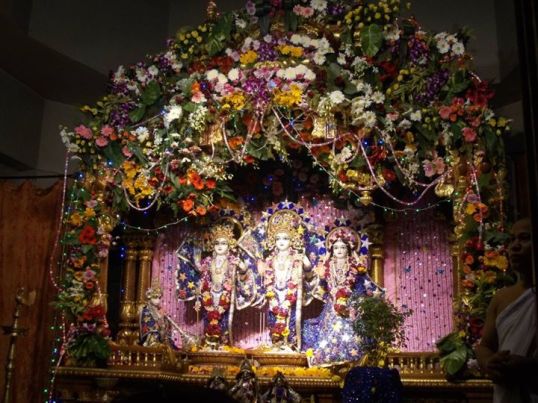
Ram durbar (Ram’s altar), ISKCON Delhi
This post is dedicated to ISKCON (International Society for Krishna Consciousness) who are promoting vegetarianism in the name of meat eater Ram. Also dedicated to all fractions of Hindu fanaticism viz. BJP, VHP, RSS, Bajrang Dal, Shiva Sena whose hero is Ram and who is an ideal persona of Hinduism; ideal son, ideal brother, ideal husband, ideal father, ideal friend and ideal king; I accept every ideal aspects of Ram but you should also accept that Ram and Sita loved their portion of meat and wine. This post is specially arranged and written in a response to present government’s zeal to ban slaughter of bovines in the name of Hindu religion and a fragile faith (आस्था). If readers wish then I am ready with an article showing ample proof of cow-slaughter and cow meat eating in Vedic India and also during Mahabharata days. The paradox is that in the name of Ram, few religious institutions are promoting vegetarianism! To add insult to injury fascist forces in present government are lobbying to impose vegetarianism and a ban on trade, possession and consumption of beef in a country where cow-sacrifice was rampant in the Vedic age.
Maximum care has been taken to ensure that this post shouldn’t reflect my opinion or plain emotions but to leave yourself to decide whether meat eating is a
bad Karma? I am not an activist of vegetarianism neither a supporter of meat eating, I am a pure vegetarian who is satisfied with two meals a day with little salt and more ghee minus any onion-garlic but I do believe that it is an unnecessary step to glorify few gods, and particularly one religion for which vegetarianism was an alien idea, all in the name of vegetarianism.
P.S. – Please try to avoid reading this post again on Monday, Tuesday, Thursday & Saturday and two Navratras as our Hindu brethren become pukka vegetarian on these days.
Thanks for your visit. Have a nice day (with or without meat & wine). Meat eating has nothing to do with your
Karmas.
Disclaimer: Any infringement of copyright protected work is not intended.
Posted in
Classics Retold,
Ramayana,
Religion and tagged
Animal-sacrifices,
Aswamedha,
Chitrakoot,
Dasaratha,
Ganga,
Gita Press,
Horse-sacrifice,
ISKCON,
Kaushalya,
Lakshman,
Ram,
Ramanand Sagar,
Ravana,
Sita,
Tulsidas,
Valmiki Ramayana,
Yamuna
